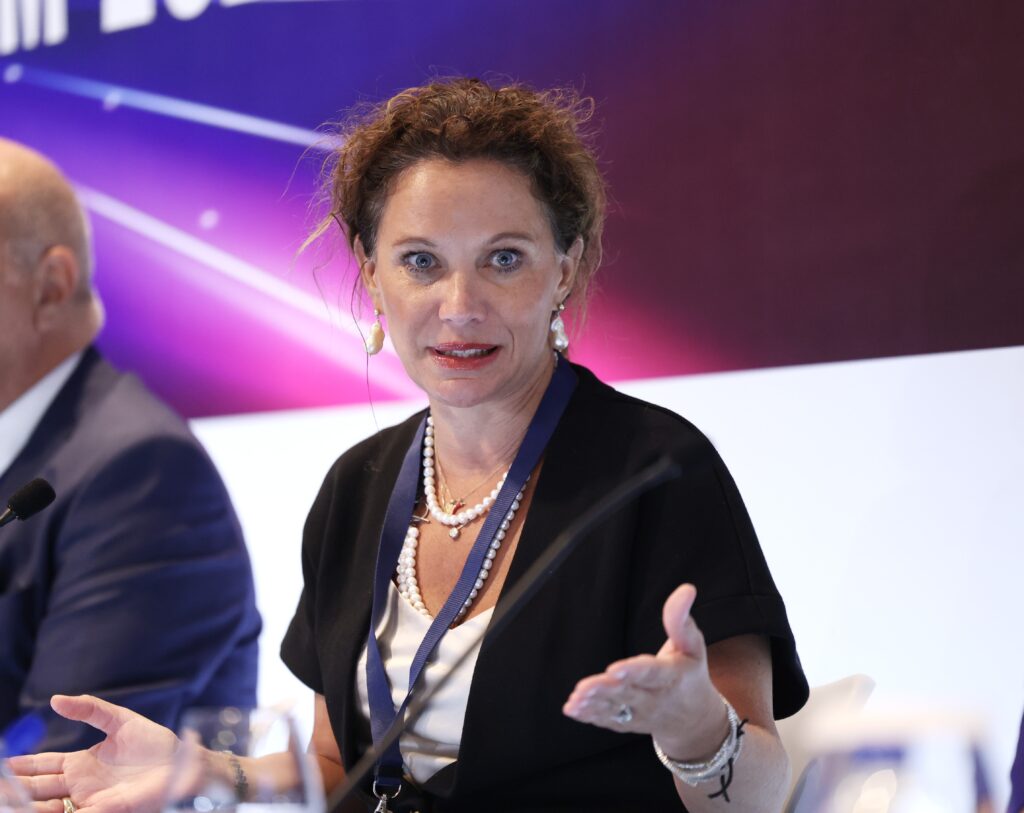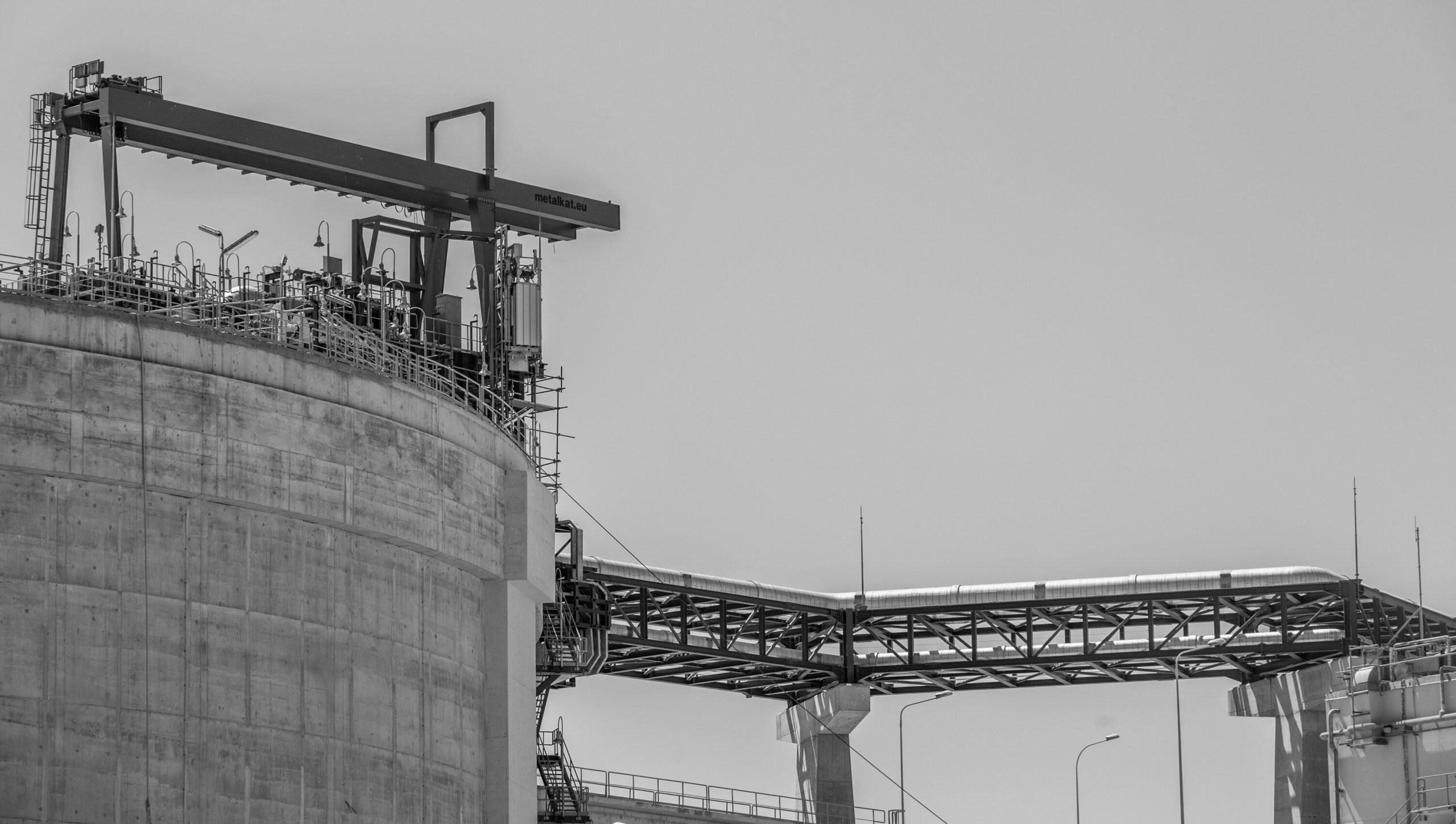Athens, September 9, 2025- DESFA participated dynamically in the Thessaloniki International Fair 2025, presenting its strategic vision to enhance energy security, promote regional cooperation and accelerate the energy transition of Greece and Southeastern Europe.
During her speech at the 5th Thessaloniki Metropolitan Summit, which was organized on Friday 5/9 by the Economist and Powergame.gr, DESFA CEO, Maria Rita Galli, highlighted the decisive role that the Greek natural gas sector has played in strengthening security of supply in recent years.
“In 2022, at the peak of the energy crisis, Greece was able to re-export only 2 billion cubic meters of natural gas per year. Today, thanks to significant investments such as the expansion of Revithoussa, the Alexandroupolis LNG terminal, the interconnection with TAP and the ICGB pipeline, this capacity has quadrupled, reaching 8 billion cubic meters by the end of 2025,” Mrs. Galli stressed.
DESFA CEO also referred to the cooperation on the Vertical Corridor, underlining that for the first time, this summer, traders in Ukraine were given the possibility of buying natural gas directly from the Greek hub. “This is the only case in Europe where Ukrainian traders buy gas directly from a hub in an EU country,” Mrs. Galli pointed out.
The Vertical Corridor was also the subject of the panel in which the head of DESFA participated in the 9th Southeast Europe Energy Forum, co-organized by the American-Hellenic Chamber of Commerce (AmCham) and the Hellenic Association of Energy Economics (HAEE) on 5/9. In particular, Ms. Galli noted that thanks to the strong cooperation between the partners of the “Route 1” capacity product, a first but important step has been taken towards enhancing diversification of supply. “We have launched an initiative designed to offer long-term ‘capacity’ and enhance energy security in Southeastern and Central Eastern Europe,” she said.
The CEO of DESFA also focused on the contribution of natural gas to the stability of the energy system, as it allows the immediate coverage of needs when production from RES decreases, while she referred to the key investments in new pipelines and compressors that will be completed soon, such as the West Macedonia pipeline and the Komotini compressor, but also to the dynamic growth of the LNG truck loading service in Revithoussa and the future small-scale LNG infrastructure.
At the same time, she highlighted another aspect of the gas industry’s role in promoting innovation and decarbonization, referring to the significant effort being made in Greece by institutional bodies, industry and DESFA for the development of an integrated carbon capture and storage chain (CCS) in Greece, with the utilization of Prinos as a storage space, but also future collaborations with Ravenna in Italy and Egypt.
“The Greek natural gas industry has made a decisive contribution to energy security and system stability, while at the same time being at the forefront of technological innovation,” concluded Mrs. Galli.
Michalis Thomadakis, Senior Director of Strategy & Development of DESFA, speaking at the “Greece 2030” conference of Imerisia, underlined the importance of Greek infrastructure for the new energy architecture of Europe. As he stated, “Greek infrastructure worked flawlessly during the energy crisis, ensuring the supply not only of the country but also of the Balkans. Revithoussa supported Bulgaria overnight and we are building infrastructure that multiplies our export potential.” At the same time, he referred to the large investments in renewable gases and the development of a modern fleet of power plants in Greece, stressing that “our country is developing into a reliable energy import and export hub for the whole of Southeastern Europe”.
Finally, Gerasimos Avlonitis, Senior Director of Market & System Development of DESFA, participated in the event “Energy in Motion: Security and Sustainability in the New Energy Landscape” organized by the DEPA COMMERCIAL on Saturday 6/9 in the context of the 89th TIF, focusing, during a discussion on “Energy Security through Infrastructure and Liquidity Development”, the upgraded role of TSOs in European and regional energy security in an expanded market environment.








